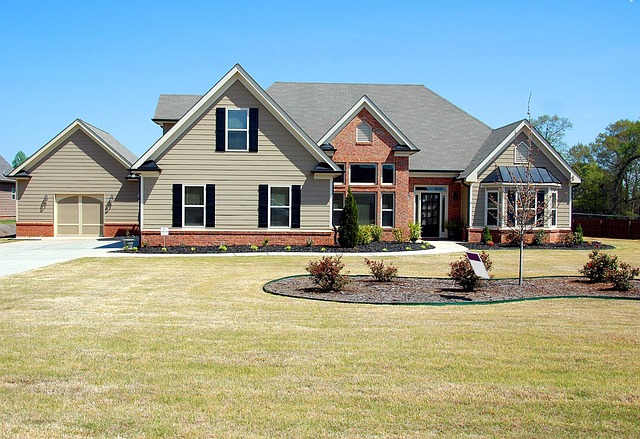Understanding Your Home's Value: A Comprehensive Guide for Homeowners
Your home is likely one of your most valuable assets. Whether you're planning to sell, refinance, or simply want to stay informed about your property's worth, understanding your home's value is crucial. This guide will walk you through the key factors that influence property values and provide insights on how to obtain accurate estimates.

What exactly is home value and why is it important?
Home value refers to the current market worth of a residential property. It’s a dynamic figure that can fluctuate based on various factors, including market conditions, property improvements, and local economic trends. Understanding your home’s value is essential for several reasons:
-
It helps you make informed decisions about selling or refinancing.
-
It provides insight into your overall financial health and net worth.
-
It can guide you in determining appropriate insurance coverage.
-
It assists in planning for property taxes and potential appeals.
Knowing your home’s value empowers you to make smart financial choices and stay ahead in the real estate game.
How do professionals determine a property’s value?
Professional appraisers and real estate agents use several methods to determine a property’s value:
-
Comparative Market Analysis (CMA): This involves comparing your home to similar properties that have recently sold in your area.
-
Cost Approach: This method estimates the cost to rebuild your home from scratch, plus the value of the land.
-
Income Approach: Primarily used for investment properties, this calculates value based on potential rental income.
-
Automated Valuation Models (AVMs): These computer-generated estimates use public records and mathematical modeling to determine value.
Each method has its strengths and limitations, and professionals often use a combination of approaches to arrive at the most accurate estimate.
What factors significantly impact home value?
Several key factors can influence your property’s worth:
-
Location: Proximity to amenities, school districts, and neighborhood quality.
-
Size and Layout: Square footage, number of bedrooms and bathrooms.
-
Age and Condition: Overall maintenance and any recent renovations or upgrades.
-
Local Market Conditions: Supply and demand in your area.
-
Economic Factors: Interest rates, employment rates, and overall economic health.
-
Unique Features: Special amenities like pools, views, or high-end finishes.
Understanding these factors can help you gauge how changes in your property or the local market might affect your home’s value.
How can homeowners obtain accurate property price estimates?
To get a reliable estimate of your home’s value:
-
Use Online Valuation Tools: Websites like Zillow, Redfin, and Realtor.com offer free estimates based on public data.
-
Consult a Local Real Estate Agent: They can provide a CMA based on recent sales in your area.
-
Hire a Professional Appraiser: For the most accurate assessment, especially for unique properties.
-
Review Public Records: Check your county assessor’s website for property tax assessments.
-
Monitor Recent Sales: Keep an eye on comparable homes sold in your neighborhood.
Remember that online estimates can vary widely, so it’s best to use multiple sources and consult with local experts for the most accurate information.
What are some unique insights about home values in the United States?
In the United States, home values can vary dramatically based on region, state, and even neighborhood. Some interesting facts and trends include:
-
Coastal areas and major cities tend to have higher property values due to limited land and high demand.
-
The COVID-19 pandemic has shifted home value trends, with suburban and rural areas seeing increased demand.
-
Energy-efficient homes and those with smart home technology often command higher values.
-
Historical designations can significantly impact a property’s value, sometimes positively, sometimes negatively.
-
Natural disasters and climate change concerns are increasingly affecting property values in certain regions.
Understanding these broader trends can provide context for your local market and help you anticipate future changes in home values.
How can homeowners increase their property’s value?
Homeowners can take several steps to potentially increase their property’s value:
-
Kitchen and Bathroom Upgrades: These areas often provide the highest return on investment.
-
Energy Efficiency Improvements: Adding insulation, upgrading windows, or installing solar panels can boost value.
-
Curb Appeal Enhancements: Landscaping and exterior improvements make a strong first impression.
-
Regular Maintenance: Keeping systems and structures in good repair prevents value depreciation.
-
Smart Home Technology: Features like automated lighting and security systems can attract tech-savvy buyers.
| Improvement | Estimated Cost | Potential Value Increase |
|---|---|---|
| Kitchen Remodel | $20,000 - $50,000 | 5-15% |
| Bathroom Remodel | $10,000 - $30,000 | 3-7% |
| Energy-Efficient Windows | $8,000 - $15,000 | 1-3% |
| Landscaping | $3,000 - $15,000 | 5-12% |
| Smart Home Upgrades | $2,000 - $10,000 | 3-5% |
Prices, rates, or cost estimates mentioned in this article are based on the latest available information but may change over time. Independent research is advised before making financial decisions.
While these improvements can potentially increase your home’s value, it’s important to consider the local market and consult with real estate professionals to ensure the upgrades are appropriate for your area and target buyer demographic.
Understanding your home’s value is an ongoing process that requires attention to market trends, local conditions, and property improvements. By staying informed and proactive, you can make the most of your real estate investment and be prepared for whatever the market brings.




